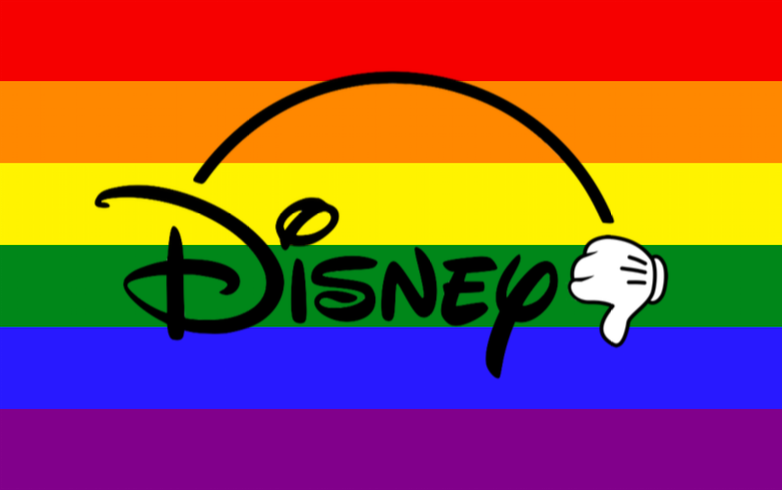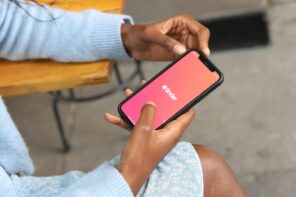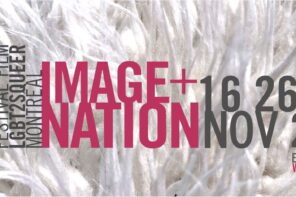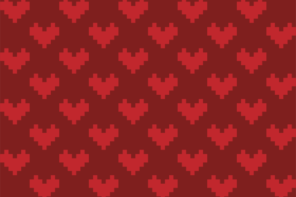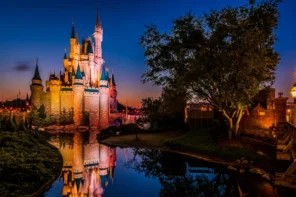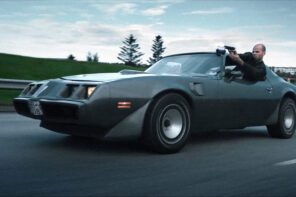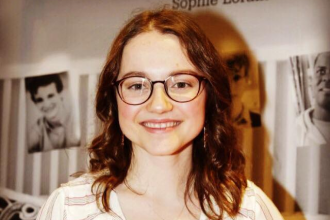Last month, Disney+ announced that the Love, Simon TV show that had been in the works for nearly a year was no longer going to be released on their streaming platform, and would instead be released on Hulu. This show is a spinoff of Love, Simon, the 2018 movie which follows a young, closeted teen as he navigates high school. Disney explained that the show would not fit in with its current slate of “family-friendly content” due to its depiction of alcohol consumption and sexual exploration. This could be perceived as a reasonable explanation for the switch over to Hulu, but I have come to associate any mention of “family values” with subtle bigotry and thus immediately distrusted their explanation.
Glancing quickly at the movies that are offered on Disney+, I found there were many that definitely didn’t fall in line with supposedly family-friendly content. Movies like Never Been Kissed and Ten Things I Hate About You contain references to alcohol and sex. There are many old cartoons with content warnings about “outdated cultural depictions”. Then, there are franchises like Star Wars and the Marvel films with gratuitous amounts of violence. None of this content seems to be of issue for Disney, yet they do take issue with a show that depicts a young teen grappling with his sexuality. This decision has made it clear to me that they are much more comfortable with throwaway lines than actual quality representation.
None of this content seems to be of issue for Disney, yet they do take issue with a show that depicts a young teen grappling with his sexuality.
Around the same time that Disney sidelined the Love, Simon show, many people were talking about Pixar’s first openly gay character in its new movie Onward. The movie has since been released and it turns out that all this buzz came from one small line where a character talks about her girlfriend. What makes this situation even worse is that this “representation” wasn’t even originally in the script: the actor asked if they could change the line from boyfriend to girlfriend and PIXAR did. Disney is taking credit for something that wasn’t their idea. They want to profit off of the buzz that this representation provides them, but they don’t want to put in the actual effort to deliver thoughtful and purposeful characterization.
This isn’t the first time that Disney has labeled a throwaway line or scene as LGBTQ representation. When the live action Beauty and the Beast came out in 2017, Lefou was described as Disney’s first openly gay character. The only indication of his sexuality was a blink-and-you-miss-it scene at the end of the film where Lefou dances in the background with another man. In The Rise of Skywalker, a kiss between two minor women characters was described as “historic.” The Russo Brothers hyped up their first openly gay Marvel character in Endgame, which turned out to be a nameless character who referred to a romantic partner as “he”.
Time and time again, there is an incredible amount of media buzz for representation that could be missed altogether if you aren’t paying close attention. The bar needs to be higher because this minimal inclusion isn’t enough to have an impact on anyone. Disney needs to stop patting themselves on the back for the bare minimum and start putting in a more conscious effort to be inclusive. They can’t constantly claim to be progressive and then turn away an opportunity to provide young teens with some quality representation. A character casually referring to their sexuality shouldn’t be revolutionary – it should be the norm. At this point, if Disney’s LGBTQ representation can’t go beyond one line, then I’m not sure we’re ever going to see a fully fleshed-out queer character from them.
Disney needs to stop patting themselves on the back for the bare minimum and start putting in a more conscious effort to be inclusive.
However, the more that I think about it, the more that I realize that I don’t really want to see that from them. I don’t trust such a large corporation to have authentic representation because there will always be a part of me that will wonder if they’re doing it because they truly believe in diverse perspectives, or because they just want to make more money. I have found representation elsewhere — in books, TV shows and indie films — and I don’t really need Disney’s take on something that they clearly don’t care about. It would be nice to see them leave their outdated values behind, but I don’t think that’s going to happen. They have shown time and time again that they don’t care about their LGBTQ audience, and I think that it’s time that people listen to what Disney is implicitly saying and seek out other sources of representation.

